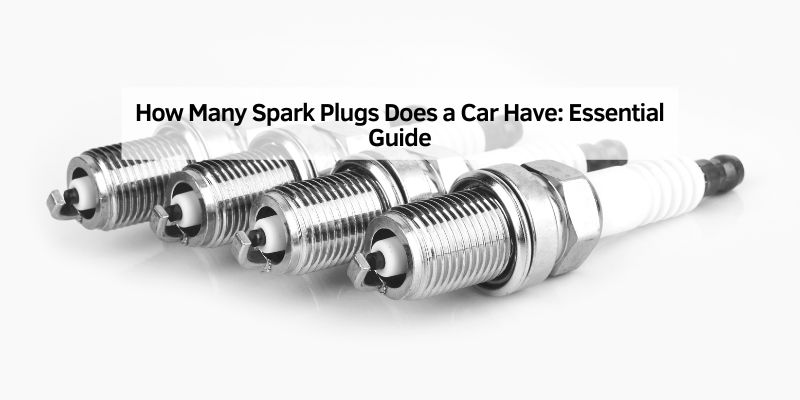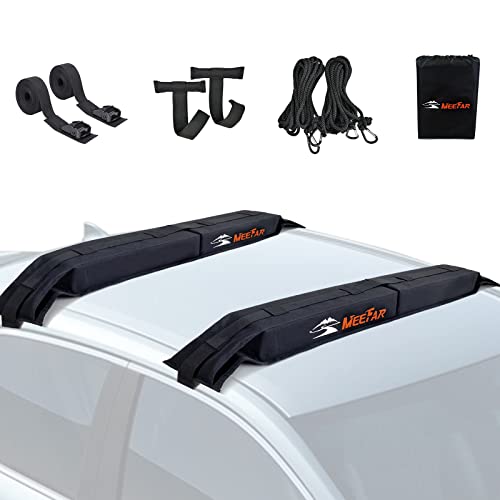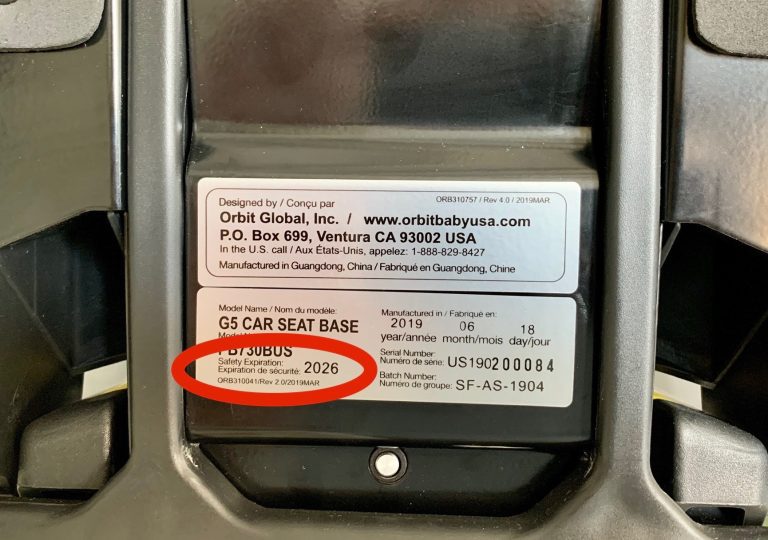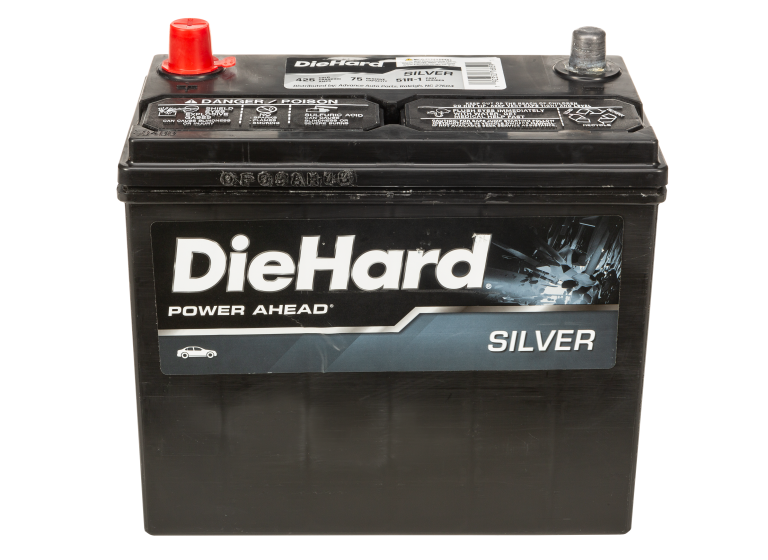How Many Spark Plugs Does a Car Have: Essential Guide
Most cars have four, six, or eight spark plugs. The number depends on the engine type.
Understanding your car’s spark plugs is crucial for maintenance. They play a key role in the engine’s ignition process. Spark plugs create a spark that ignites the air-fuel mixture. This process powers the car. Knowing how many spark plugs your car has can help with repairs.
It can also aid in understanding vehicle performance. Many drivers overlook this small but vital component. But it’s essential for smooth running and efficiency. In this blog, we explore different engine types and their spark plug needs. Learn how to identify the number in your vehicle. This knowledge can save time and money in the long run.
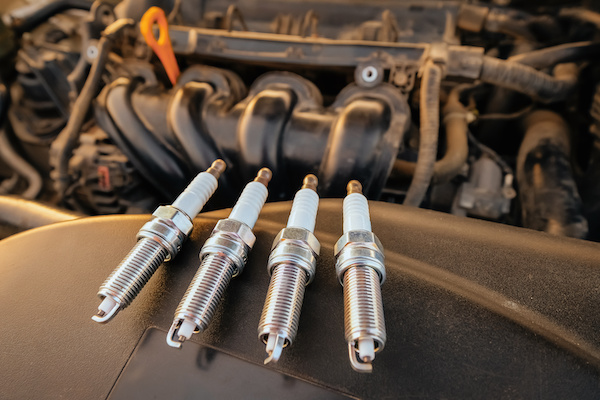
Credit: www.gilshalfmoon.com
Spark Plug Basics
Spark plugs are small but very important. They help start the car. Engines need them to work. Without spark plugs, cars won’t run. They make the engine start by lighting the fuel. This is their main job. They keep engines running smooth. If a spark plug is bad, the car might not start. It can also cause the car to run rough. Good spark plugs save fuel. They help cars run better and longer.
There are different spark plug types. Copper spark plugs are common. They are cheap but wear out fast. Iridium spark plugs last longer. They cost more but save money over time. Platinum spark plugs are in the middle. They last longer than copper but less than iridium. Choosing the right type is important for your car. Always check what your car needs. This helps the engine work best.
Determining Quantity
Determining the number of spark plugs in a car depends on the engine type. Cars with four-cylinder engines typically have four spark plugs, while those with six-cylinder engines usually have six. V8 engines often require eight spark plugs. Understanding your car’s engine configuration helps identify the exact number needed.
Engine Configurations
Engine size affects spark plug count. Bigger engines need more plugs. A four-cylinder engine typically has four plugs. V6 engines usually have six spark plugs. V8 engines often need eight plugs.
The engine’s type also matters. Some engines have dual spark plugs per cylinder. This boosts power and efficiency. So, a four-cylinder engine might need eight plugs.
Engine design can vary. Sometimes, car makers design engines differently. This can change the number of spark plugs needed. Always check your car manual for exact numbers.
Common Engine Types
Four-cylinder engines are very common in cars. These engines have four spark plugs. Each cylinder needs its own spark plug. They help the engine start and run smoothly. Most small cars use this type of engine. It’s efficient and uses less fuel. Families love these cars for daily drives.
Six-cylinder engines are more powerful. They have six spark plugs. Each cylinder gets one spark plug. This helps the engine work well. Bigger cars and trucks often have these engines. They are strong and can pull heavy loads. But they use more fuel than smaller engines. People choose them for long trips and big families.
Advanced Engine Designs
Cars usually have one spark plug per cylinder. A four-cylinder engine uses four spark plugs. Larger engines, like V8s, often require eight spark plugs. Some advanced engines may need two spark plugs per cylinder for efficiency. Understanding your engine type helps determine the exact number of spark plugs needed.
V8 Engines
V8 engines are powerful. These engines have eight cylinders. Each cylinder has one spark plug. So, a V8 engine has eight spark plugs. This design offers more power. It suits high-performance cars. Many sports cars use V8 engines. They offer speed and strength. V8 engines sound different. Their roar is loud and strong.
Turbocharged Engines
Turbocharged engines boost power. They use a turbocharger. This device pushes more air into the engine. More air means more fuel burns. This results in more power. Most turbo engines have one spark plug per cylinder. Some have more. The number of spark plugs depends on the engine design. Turbo engines are popular. They are efficient and powerful. Many modern cars use them. They offer a good mix of power and efficiency.
Electric And Hybrid Cars
Electric and hybrid cars often have fewer spark plugs than traditional cars. Electric engines don’t use spark plugs, while hybrid engines may have them. The number depends on the engine type and configuration. Typically, a traditional car engine uses one spark plug per cylinder.
Plug-in Hybrid Systems
Plug-in hybrid cars have both a gas engine and an electric motor. Each motor needs its own spark plugs. The gas engine usually has four spark plugs. It depends on the number of cylinders. The electric motor does not need spark plugs. It runs on electricity from a battery. This means only the gas engine uses spark plugs.
Fully Electric Vehicles
Fully electric cars do not use spark plugs. They use electric motors. These motors get power from batteries. No gas engine means no spark plugs are needed. These cars have simpler engines. They don’t need regular spark plug changes. This makes them different from regular cars.
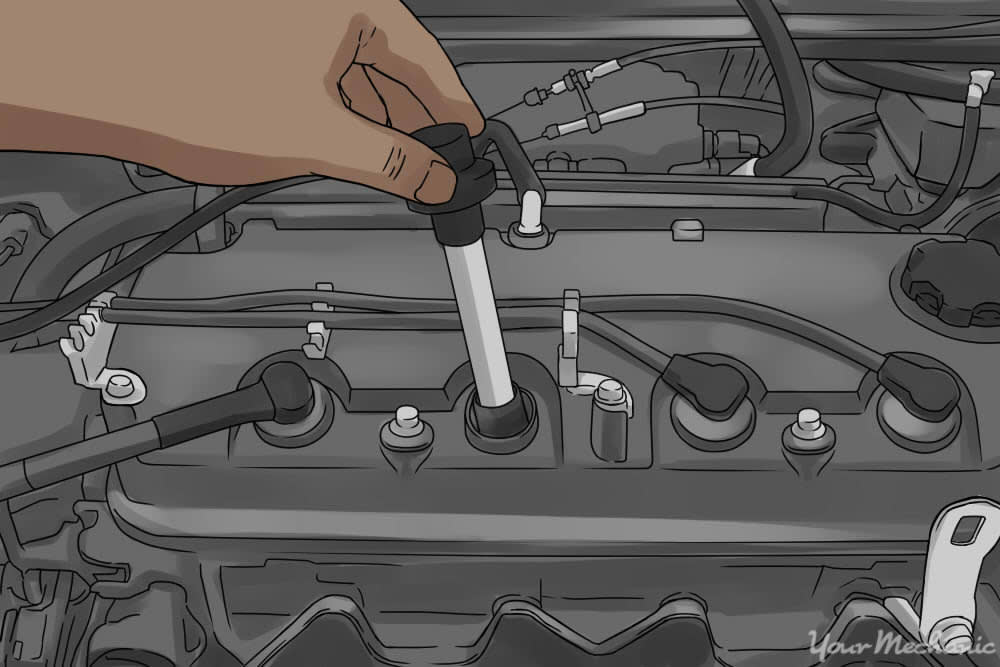
Credit: www.yourmechanic.com
Maintenance Tips
Spark plugs are small, but very important. They help the car start. To keep them working well, check them often. Look for dirt or damage. Clean them if needed. Make sure they are tight. Loose plugs can cause problems. Use the right tools. Be gentle when handling them.
Sometimes, spark plugs need replacing. Old or damaged plugs can make the car run poorly. First, find the right spark plug type. Check the car’s manual for this. Use a wrench to remove the old plug. Be careful not to break it. Place the new plug in its place. Tighten it securely. Always do this step carefully.
Troubleshooting Issues
Old spark plugs may cause engine misfires. The car might struggle to start. You may notice poor fuel efficiency. The car may have rough idling. These are common signs. The engine could jerk or stall. Check for black soot on plugs. This means carbon buildup. Cracked ceramic is also a sign. Replace them if needed. It can prevent damage. Keep your engine running smoothly.
Worn spark plugs affect engine power. The car may feel sluggish. Acceleration might suffer. You may hear strange noises. The engine could vibrate. Check the spark plug gap. Adjust if necessary. Regular maintenance is key. It helps maintain engine performance. Avoid unexpected breakdowns. Always use the right type for your car.
Choosing The Right Spark Plugs
Spark plugs come in different materials. Common options include copper, platinum, and iridium. Each material has its own benefits. Copper plugs are affordable and reliable. Platinum lasts longer than copper. Iridium plugs are the most durable. They offer the best performance. Choosing the right material is important. It affects your car’s efficiency and lifespan.
Not all spark plugs fit every car. Check your car manual for recommendations. Using the wrong spark plug can harm your engine. Engine performance may drop. Gas mileage can also suffer. Always double-check the spark plug type before buying. Compatibility keeps your car running smoothly. A proper fit means better car health.
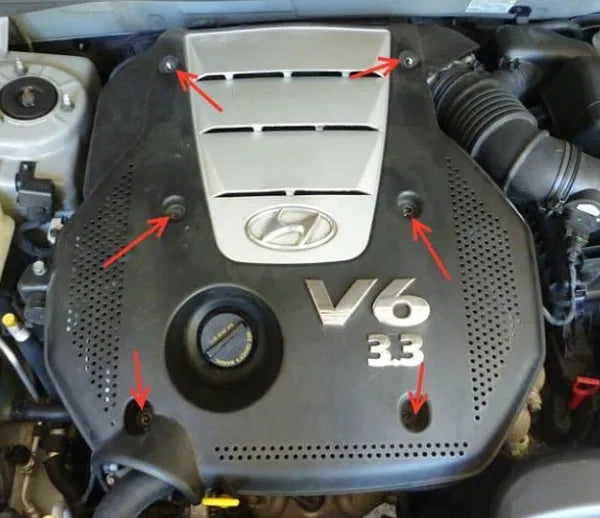
Credit: wdpart.com
Frequently Asked Questions
What Are Signs Of Bad Spark Plugs?
Signs of bad spark plugs include engine misfires, rough idling, reduced fuel efficiency, and difficulty starting the engine. You might also notice poor acceleration, increased exhaust emissions, and a decrease in overall engine performance. Regular inspection and maintenance can help identify and resolve spark plug issues early.
Do All Cars Have 4 Spark Plugs?
No, not all cars have 4 spark plugs. The number depends on the engine type and number of cylinders. For example, a V6 engine typically has 6 spark plugs.
How Many Spark Plugs Does A V6 Have?
A V6 engine typically has six spark plugs, with one spark plug per cylinder. This configuration helps ensure efficient combustion and smooth engine performance. Regularly check and replace spark plugs to maintain optimal engine function.
How Much Do Spark Plugs Cost?
Spark plugs typically cost between $5 to $20 each. Prices vary based on brand and vehicle compatibility. High-performance spark plugs might be more expensive. Buying in packs can sometimes reduce the cost per plug. Always choose spark plugs suitable for your vehicle’s requirements for optimal performance.
Conclusion
Understanding spark plugs is crucial for car maintenance. Most cars use one spark plug per cylinder. Check your car’s manual for exact details. Regular checks ensure optimal performance. Replace worn-out spark plugs promptly. This keeps engines running smoothly. Ignoring spark plug issues can lead to engine troubles.
Simple maintenance can save costly repairs. Stay informed about your car’s needs. A well-maintained engine ensures better fuel efficiency. Happy driving starts with a healthy engine. Keep an eye on spark plugs. It’s a small task with big benefits. Your car will thank you.

